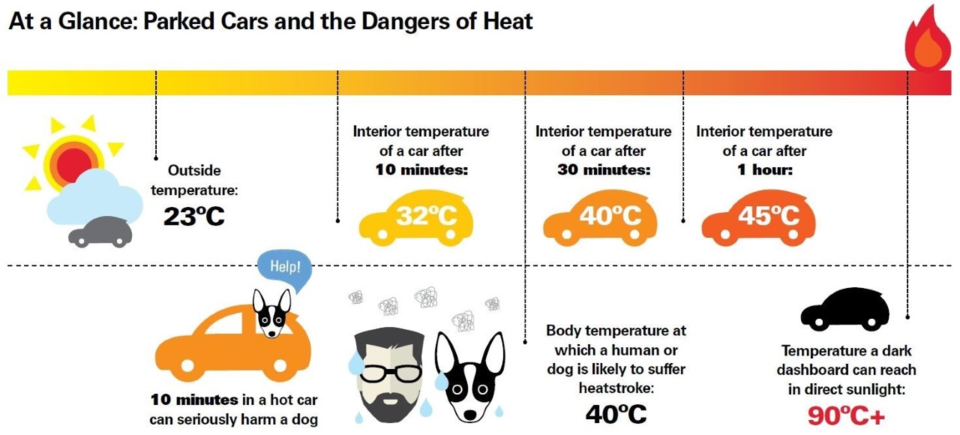As another hot weekend approaches, it's time to get all your summer essentials — sunscreen, shades, hats, dresses — ready. That includes checking the safety of your vehicles, says the British Columbia Automobile Association (BCAA).
With temperatures expected to soar up to 32 C — again, BCAA is offering safety tips for driving in hot weather.
The organization advises car owners to have their engine coolant levels and concentration checked by a mechanic and top up as necessary. Each vehicle requires a different coolant type and strength, so it’s advised to check the owner’s manual.
Nothing is worse than sitting in a car that feels like a hot box — so ensure the air conditioner is blowing cold air. If not, check for leaks; or it may require a flush. It’s also advised to change your oil regularly to help prolong your engine’s life.
The age and strength of a car battery, too, can have an effect in the heating levels, BCAA notes. Heat is harder on a tired cell than cold, and usually, a five-year-old battery means it’s nearing retirement. So don’t forget to check your battery’s age and give it its deserved farewell if needed.
Keep the gas tank at least more than half full, so that the fuel keeps cool and it doesn’t overwork your alternator. (Also remember, AC can increase fuel consumption by 20 per cent because of the extra load on the engine.)
Keep your tires, including the spare, sufficiently inflated, and if they're cracked or low on tread, replace them.
Slowing down on the road is also advised as it saves gas and reduces the likelihood of engine overheating. And when parked, use folding sunshades to lower the temperature inside the vehicle.
And be prepared for a breakdown. That means carrying water, food, a fully charged mobile phone and portable shades like hats or umbrellas.
If you’re in need of help, call 1.800.222.4357 for BCAA Roadside Assistance.




